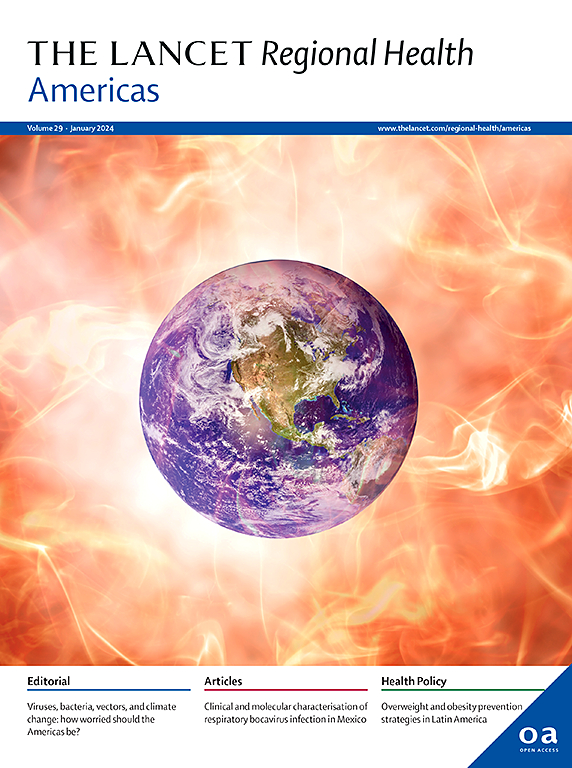Epidemiology, incidence, and outcome of childhood cancers in the Afro-descendant population of the French West Indies and French Guiana: a population-based study
IF 7
Q1 HEALTH CARE SCIENCES & SERVICES
引用次数: 0
Abstract
Background
The epidemiology of childhood cancer in Afro-descendant (AD) populations is poorly described. We performed a descriptive study of the distribution, incidence, and survival of children with cancer in the French West Indies (FWI) and French Guiana (FG).
Methods
We included all patients aged 0–17 diagnosed with cancer or benign intracranial tumor between January 2011 and December 2021 and living in the FWI/FG area at time of diagnosis. The cases were identified from the French national registry of childhood cancer and cross-referenced with local sources. Incidence rates were calculated, and compared to that of mainland France by standardized incidence ratios (SIR). Vital status was completed up to the 31st of December 2023 (date of point). Relapses were identified and documented in pediatric reference centers in mainland France and local centers. The 5-year overall survival (5yOS) and event-free survival (5yEFS) were estimated using Kaplan–Meier method.
Findings
We identified 368 patients (26% leukemias, 21% central nervous system tumors, 12% lymphomas, and 41% others). The average age at diagnosis was 8.8 years (Range: 0.1–17.8), with 52% boys. The median follow-up was 4.4 years (Range: 0.1–12.3). The age standardized rates for all cancers was lower than in mainland France (124.9 vs 162.6 per million-year for children under 18 years old, SIR = 0.77 [95% CI: 0.69–0.85]). The 5yOS was 78.9% [95% CI: 73.9–83.0] and 5yEFS was 69.3% [95% CI: 63.9–74.0]. The 5yOS for the 0–14 age group was 81.2% [95% CI: 76.9–85.5].
Interpretation
This first registry-based study of childhood cancer in the FWI and FG shows that our patients with childhood cancer, treated in a country with a high standard of health care, has resulted in overall survival comparable to that of European and North American children.
Funding
The authors received no financial support.
求助全文
约1分钟内获得全文
求助全文
来源期刊

Lancet Regional Health-Americas
Multiple-
CiteScore
8.00
自引率
0.00%
发文量
0
期刊介绍:
The Lancet Regional Health – Americas, an open-access journal, contributes to The Lancet's global initiative by focusing on health-care quality and access in the Americas. It aims to advance clinical practice and health policy in the region, promoting better health outcomes. The journal publishes high-quality original research advocating change or shedding light on clinical practice and health policy. It welcomes submissions on various regional health topics, including infectious diseases, non-communicable diseases, child and adolescent health, maternal and reproductive health, emergency care, health policy, and health equity.
 求助内容:
求助内容: 应助结果提醒方式:
应助结果提醒方式:


